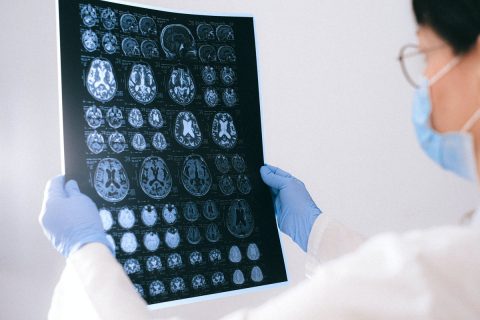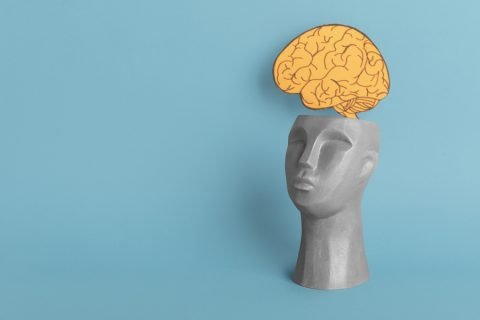Medically Reviewed by:
Dr Chhavi Rosha. A specialist in Neonatology, renowned for co-authoring a book on maternal nutrition and childcare.
Have you ever stopped to think about the intricate connection between your blood pressure and your brain health? It usually goes unnoticed, but understanding this relationship is crucial, especially as we age. So, let’s take a moment to explore how blood pressure can impact our brain health and why it’s essential to manage it effectively.
Your blood pressure is the force exerted by your blood against the walls of your arteries as it circulates throughout your body. It’s like a fluid stream that passes through various channels, with the heart acting as a pump. However, when this force becomes too high or remains elevated over time, it can have detrimental effects on your brain.
Research has shown that high blood pressure, also known as hypertension, increases the risk of several neurological conditions, including stroke, vascular dementia, and cognitive decline. The constant strain placed on the delicate blood vessels in the brain can lead to damage and impairments in cognitive function.
In this blog post, we will explore seven key connections between blood pressure and brain health. We will delve into how hypertension affects the brain, ways to manage and control your blood pressure levels, and steps you can take to maintain optimal cognitive health. So let’s dive into this topic and determine how we can prioritize our overall well-being by managing blood pressure fluctuations effectively.
How does blood pressure affect brain health? 7 key connections
High blood pressure, also known as hypertension, is a common condition among older adults. While it may seem like a minor inconvenience, high blood pressure can have significant implications for brain health. In this article, we will explore seven key connections between blood pressure and brain health, highlighting the importance of managing your blood pressure for optimal cognitive function.
1. Reduced blood flow
One of the primary ways high blood pressure affects the brain is by reducing blood flow to this vital organ. When your blood vessels narrow and become less stretchable owing to high pressure, it becomes harder for oxygen and nutrients to reach your brain cells. As a result, cognitive functions such as memory and attention may be compromised.
2. Increased risk of stroke
High blood pressure is a leading risk factor for stroke, which occurs when there is a disruption in blood flow to the brain. When blood vessels in the brain become damaged or blocked owing to hypertension, a stroke may occur, which leads to potentially severe consequences such as paralysis or difficulty speaking.
| Good to know: Because the average levels of stress globally are higher than before, individuals are recommended to monitor their blood pressure levels and other vitals at periodic intervals, starting as early as 30 years. |
3. Cognitive decline
Individuals with uncontrolled high blood pressure are at a higher risk of developing cognitive decline and dementia later in life. The exact mechanism behind this connection is still being studied, but it is believed that reduced blood flow and damage to small blood vessels in the brain play a role.
4. White matter lesions
Chronic high blood pressure can lead to the development of white matter lesions in the brain. Symptoms associated with white matter lesions include problems with thinking, walking, and mood disturbances. These lesions appear as white spots on a brain magnetic resonance imaging scan.
| Fact check: What are white matter lesions? Answer: White matter lesions are areas of damaged tissue in the brain caused by stressors. While such lesions may be harmless in many cases, they may lead to disruptions in important pathways and cause issues in an individual’s memory or motion. |
5. Affects brain structure
Long-term exposure to high blood pressure can cause structural changes in the brain. These changes include shrinkage of certain areas involved in memory and learning, such as the hippocampus and frontal lobes. This structural damage can further contribute to cognitive decline.
6. Increased risk of Alzheimer’s disease
Hypertension may increase the risk of developing Alzheimer’s disease, a neurodegenerative condition characterized by memory loss and cognitive decline. The underlying mechanisms are complex, but it is believed that high blood pressure contributes to the accumulation of certain proteinaceous fragments (amyloid plaques and tau tangles) in the brain, which are hallmarks of Alzheimer’s.
7. Influence on brain ageing:
Normal ageing is associated with some degree of cognitive decline, but high blood pressure can accelerate this process. Research suggests that individuals with hypertension may experience faster cognitive decline and an increased risk of developing age-related cognitive disorders such as Alzheimer’s disease. Taking steps to manage blood pressure effectively can help slow down the ageing process in the brain and maintaining your cognitive age.
Steps to manage blood pressure
Some simple lifestyle measures can help manage blood pressure levels and prevent cognitive decline. While it is ideal to start at a young age, it’s never too late when you want to take charge of your health. Here are some simple steps you can take:
- Regular exercise: Engage in aerobic activities to maintain cardiovascular health and manage blood pressure. Regular walks are an excellent way to keep your blood pressure levels in check.
- Heart-healthy diet: Consume a diet rich in local fruits and vegetables and low-fat proteins (like lean meat, pulses, etc.) while minimizing sodium intake.
- Stress management: Practice meditation, yoga, or other stress-reducing activities to alleviate hypertension.
- Limit alcohol and tobacco: Reduce alcohol intake and avoid tobacco, as they contribute to elevated blood pressure.
- Regular check-ups: Schedule routine check-ups with your doctor for timely intervention.
To conclude…
High blood pressure can have far-reaching effects on brain health. From reduced blood flow to an increased risk of stroke and cognitive decline, it is essential to prioritize managing your blood pressure for optimal brain function as you age. By understanding the connections between cognitive health and hypertension, you can take proactive steps to protect your cognitive well-being and enjoy a better quality of life.
Understanding the intricate connection between blood pressure and brain health is crucial for maintaining overall well-being. Medical experts maintain that keeping our blood pressure within a healthy range is essential for preserving brain function and preventing cognitive decline.
If you suspect that your blood pressure may be affecting your brain health, it is important to take proactive steps towards managing it. Regular monitoring of your blood pressure levels and seeking professional medical advice are crucial in ensuring optimal brain health. There are also various tests available that can help you self-diagnose your condition, but it is always recommended to consult a qualified healthcare professional for an accurate diagnosis and personalized treatment plan.
By implementing lifestyle modifications such as adopting a balanced diet, engaging in regular physical activity, managing stress levels, and adhering to medication regimes as prescribed by your doctor, you can effectively manage your blood pressure and reduce the risk of detrimental effects on your brain health.
Remember, knowledge is power. Armed with this newfound understanding of the relationship between blood pressure and brain health, you have the tools to make informed decisions about your well-being. By taking charge of your blood pressure management, you are taking a proactive step towards preserving cognitive function and enjoying a better quality of life.
If you have any further questions or would like to learn more about how to maintain a healthy blood pressure level, visit us at liveivory.com. Our team of experts is here to support you in your journey towards optimal brain health. Together, we can create a brighter future for ourselves and our loved ones.




